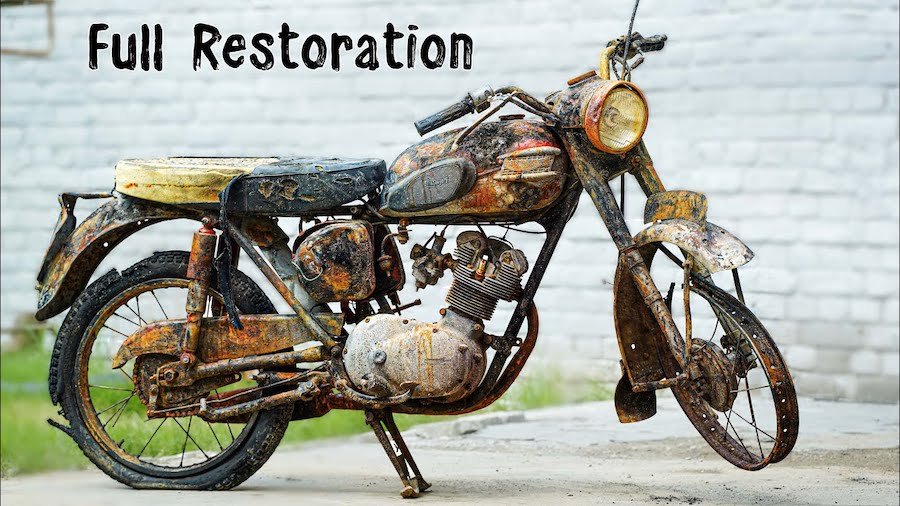Watch A 1963 Triumph Tiger Cub Go From Tired To Fire In This Restoration

One of the great joys of springtime is watching all the seemingly dull, lifeless greenery gradually regain color and come back to life. Quite coincidentally, that’s also what we enjoy about a good restoration timelapse video. Like, for example, this languishing 1963 Triumph Tiger Cub that was recently rescued by the YouTube channel Live with Creativity.
For those unfamiliar, the Tiger Cub started in late 1953, as a slightly sportier evolution of the Triumph Terrier. It was built on the same platform, but always outfitted with a slightly higher-displacement, 200cc single-cylinder engine (as compared to the Terrier’s 150cc one). Hence, the Terrier was also referred to as the T15, and the Tiger Cub as the T20.
While the Terrier soon fell by the wayside, the Tiger Cub and its large number of variations over the next decade-plus proved quite popular. Many a new rider at that time learned to ride on a Tiger Cub, and plenty were outfitted for competition use, as well. The 1953 versions of both the Tiger Cub and Terrier started out with a plunger-type rear suspension that no one much liked, but by the time the 1963 version seen in this video came around, a much more sensible swingarm rear suspension was the order of the day.
Although tweaks to carburetors and points were made from year to year, the most recent engine update in 1961 had the Tiger Cub putting out a claimed 14.5 horsepower at 6,500 rpm, according to Ian Falloon’s the Complete Book of Classic and Modern Triumph Motorcycles 1937 to Today.
As you can see, the 1963 Triumph Tiger Cub that LWC managed to find for restoration in this video has definitely seen better days. That of course makes sense, since the thing is a full 60 years old—and who knows what kind of life it’s led? As LWC starts to take it all apart, though, one thing becomes clear: While it looks rough on the outside, most of the rust that we’re seeing is thankfully surface rust, not serious Swiss cheese metal.
Take the tank, for instance. After removing it, stripping the paint, and examining the metal underneath, it’s clear that there are some dents that need repair. It’s also clear that there’s some surface rust inside, but nothing that a little rust removal won’t fix. Afterward, it’s time for a zinc coating treatment to protect the interior—and after a bunch more preparation and cleanup, it’s ready for a respray. Honestly, we’ve seen tanks in a lot worse condition on younger bikes than this.
Most of the rest of the restoration is more straightforward than you might expect. The engine isn’t in bad shape—just a bit old and tired. Replacements of things like the piston and valves are to be expected on a bike of this age—and sure enough, they make a huge difference. Most of the exterior elements of this bike, including the cylinder and cylinder heads, just need a whole lot of cleaning, preparation for either a new coat of paint or some powder coating, and they’re ready to go back into service.
Toward the end of the video, a nice big DHL box shows up with some of the other parts needed to complete the restoration. This includes new grips, a new gauge, new ignition barrel, new starter switch, new tank badges—and of course, a new saddle, because the old one has gone the way that all 1963 foam from Britain must go.
By the time the transformation is complete, this little Tiger Cub clearly has its charm well in hand. At the end, we get to witness a short test ride—and even though there’s some wind noise, it’s clear that the bike is making all the right noises to show that it’s now running as good as it looks.
Related News
